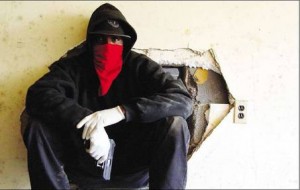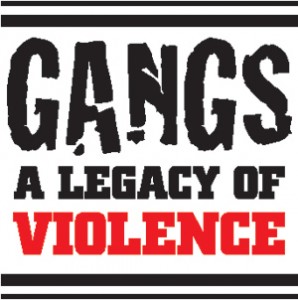 There are times when reality hits home, gives you a wake-up call, and leaves you with the realization the dirty side of life still exists even though you may have forgotten or chose to ignore it. Some people don’t have the luxury to forget. They work it every day, seemingly living it because they must. It’s their job. Such are the men and women of the T.G.I.A., Texas Gang Investigators Association.
There are times when reality hits home, gives you a wake-up call, and leaves you with the realization the dirty side of life still exists even though you may have forgotten or chose to ignore it. Some people don’t have the luxury to forget. They work it every day, seemingly living it because they must. It’s their job. Such are the men and women of the T.G.I.A., Texas Gang Investigators Association.
After reading my novels, Mr. Paul Zamarripa, T.G.I.A. South Region Director, Position 1, contacted and invited me to attend their conference in San Antonio, Texas. That was quite an honor for me. Considering my former experience as a law enforcement officer, he believed it would be a good opportunity to present something different to the attendees; have me sign my books, talk with everyone, and allow them to see there can be life outside of their daily jobs which are mentally grueling.
Of course I accepted! What author wouldn’t? So for two full days I signed books, met old friends, people engaged in gang investigations and enforcement, and made new friends – one of which was Mr. Zamarripa.
Were the 750 conference attendees all cops? No. They ranged from federal agencies of all levels, constables, state, county and municipal law enforcement, and parole/probation officers to school counselors and court administration. Yes, I probably missed someone in that list of attendees. But as you can see, it takes such a spectrum of people, working hand in hand, to address today’s growing problems with gangs.
There was a time long, long ago when you said the word “gangs” and only images of leather-vested motorcycle riders and teenagers in neighborhoods with aerosol paint cans came to mind. The majority of the public never came in contact with them. Fast forward ahead and now everyone across our nation and in foreign countries is infected with a mounting crime rate rising from street thug gangs to violent drug cartel involvement. Big cities to small country towns, the types of crimes related to them seems endless: theft, burglary, drugs, rape, prostitution, kidnapping, assault, murder, and so on. And there are no barriers when it comes to age and social economic status as well. Children to adults are recruited, and the poor from slums and barrios to the college educated crowd living in well-to-do neighborhoods are brought into the fold.
What lies at the base of the gang problem? Money, economics; the list of reasons continues but those two are the meat and potatoes of the issue. And solving gang problems that have such far reaching tentacles into the criminal underworld often feels as if you are at the beach trying to hold back the waves of the ocean. 
When drug cartels have enough money to recruit whole units of deserters from Mexican Army special forces units to do their violent bidding, they certainly have no qualms in hiring stateside ‘wannabe-gangstas’ or organized gangs to run dope and make hits on selected targets. Doing so keeps the cartel’s hands clean.
This is where the men and women of the T.G.I.A. come into play. They don’t just work ‘9 to 5’ and walk away at the end of the day. They live it ‘24-7’ and shift between the cruelties of the gang world and their home life, constantly struggling to maintain their sanity and a positive outlook on society. Their phones ring day and night and they are often called away for investigations while enjoying a little time with family. That’s one reason divorce rates are high in police work. While I was at the conference I listened to probation officers getting calls about parole violators, and investigators talking to patrol officers about certain ‘tats’ on a suspect.
 Conferences are important for several reasons – networking, sharing intel, learning from one another – earning educational hours required by the State of Texas as part of their continuing education to retain their licenses – but to me, most of all, it gives them some down time to clear their heads, especially when you are not working undercover and feel you need to always dress the part of being a gang member. Like patrol officers and detectives working the streets, it’s easy to get wrapped up in the ‘us versus them’ syndrome whereby it’s the police against everyone outside of law enforcement because all you see is the crap side of life and wonder if anyone good is left other than another cop.
Conferences are important for several reasons – networking, sharing intel, learning from one another – earning educational hours required by the State of Texas as part of their continuing education to retain their licenses – but to me, most of all, it gives them some down time to clear their heads, especially when you are not working undercover and feel you need to always dress the part of being a gang member. Like patrol officers and detectives working the streets, it’s easy to get wrapped up in the ‘us versus them’ syndrome whereby it’s the police against everyone outside of law enforcement because all you see is the crap side of life and wonder if anyone good is left other than another cop.
The stories these people can tell you about gang violence and activities and working the streets would make most authors’ crime novels look like kindergarten books.
Take the time to browse various websites of your local law enforcement such as Stop Houston Gangs and related associations such as the T.G.I.A. Read about the crimes gangs commit and how they operate. See for yourself how big the problems truly are. After all, the end product of their criminal acts affects your tax dollars!
What can you do to help? First, start by telling your children they are loved – and talk to them. Have conversations with them about problems they see and may be confronted with in school or in the neighborhood. Don’t wait until your children are teenagers. Start talking to them when they are much younger.
Gangs are a subject which could be studied for semesters in a classroom setting and you still wouldn’t learn all there is to know. So my hat’s off to the members of the TGIA, as well as all law enforcement related personnel, for their commitment to keeping our streets clean.
And my thanks to Mr. Paul Zamarippa for the invitation which allowed me to learn about this association.
Glenn

